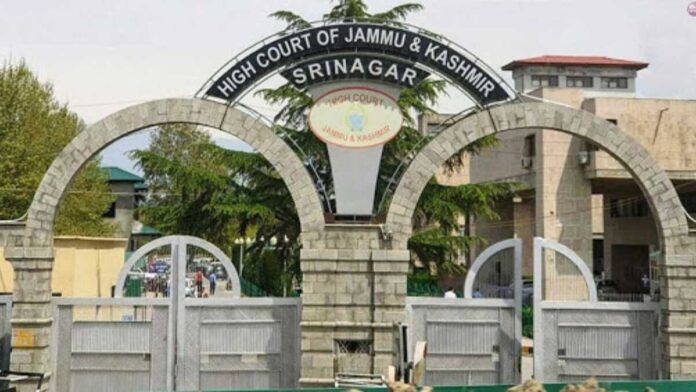Srinagar: The High Court of Jammu and Kashmir and Ladakh on Monday took a serious note of concerns raised over flood preparedness in Kashmir and directed top bureaucrats to appear in person before the Bench.
As per KNO, the intervention came during the hearing of a Public Interest Litigation (PIL) filed by the Environmental Policy Group (EPG).
The Division Bench, headed by the Chief Justice, examined a six-page report submitted by EPG convenor Faiz Ahmed Bakshi through Amicus Curiae Advocate Nadeem Qadri.
The report highlighted the risks posed by inadequate preparedness, encroachment on wetlands, and the absence of long-term planning.
Following the submission, the Court directed the Commissioner Secretaries of the Irrigation and Flood Control Department and the Housing and Urban Development Department, along with the Divisional Commissioner Kashmir, to be present at a special hearing scheduled for September 9 (Tuesday).
The Bench also instructed the government to file a detailed Action Taken Report (ATR).
The EPG report called for a halt to all land allotments, sales, or transfers within 500 metres of wetlands, arguing that unchecked encroachment was reducing the Valley’s natural flood absorption capacity.
It specifically mentioned projects such as Rakh Arth, Transworld University, and IIM Srinagar, urging that they be stopped immediately. The report further recommended that no government buildings or facilities be constructed without confirming the land is not a waterbody.
The report said that the carrying capacity of the Jhelum River and its flood channels has not been increased despite repeated court directions since 2014. Dredging operations undertaken in the years after the floods were described as incomplete and inconsistent.
The group urged that dredging be guided by satellite surveys and sediment studies, with continuous monitoring to ensure effectiveness.
It also flagged the decline of wetlands such as Hokersar, Haigam, Shallabugh, and Mirgund, as well as the encroachment on Narakara Nambal.
These wetlands once acted as natural buffers during high rainfall but are now unable to perform that role, the report said.
In addition, the EPG highlighted the vulnerability of Srinagar’s drainage system and the weak condition of embankments along the Jhelum, which remain unrepaired or fragile since the 2014 breaches. It suggested the creation of small storage structures in every basin and sub-basin, which could help moderate floodwaters while also supporting hybrid power generation.
Marking the 11th anniversary of the 2014 floods, the EPG reiterated its commitment to pursue the matter in court. The Group also announced plans to hold a seminar of experts and submit further recommendations to the government. (KNO)

